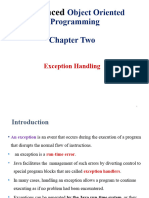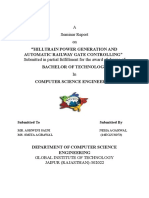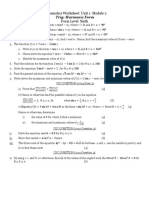0% found this document useful (0 votes)
13 views12 pagesException Handling 1
The document discusses exception handling in Java, explaining what exceptions are and their impact on program execution. It categorizes exceptions into checked and unchecked types, detailing examples and how they are handled using try-catch blocks. Additionally, it covers the JVM's role in managing exceptions, including the call stack mechanism and the use of finally blocks for resource cleanup.
Uploaded by
Pratyush DixitCopyright
© © All Rights Reserved
We take content rights seriously. If you suspect this is your content, claim it here.
Available Formats
Download as PDF, TXT or read online on Scribd
0% found this document useful (0 votes)
13 views12 pagesException Handling 1
The document discusses exception handling in Java, explaining what exceptions are and their impact on program execution. It categorizes exceptions into checked and unchecked types, detailing examples and how they are handled using try-catch blocks. Additionally, it covers the JVM's role in managing exceptions, including the call stack mechanism and the use of finally blocks for resource cleanup.
Uploaded by
Pratyush DixitCopyright
© © All Rights Reserved
We take content rights seriously. If you suspect this is your content, claim it here.
Available Formats
Download as PDF, TXT or read online on Scribd
/ 12






















































































